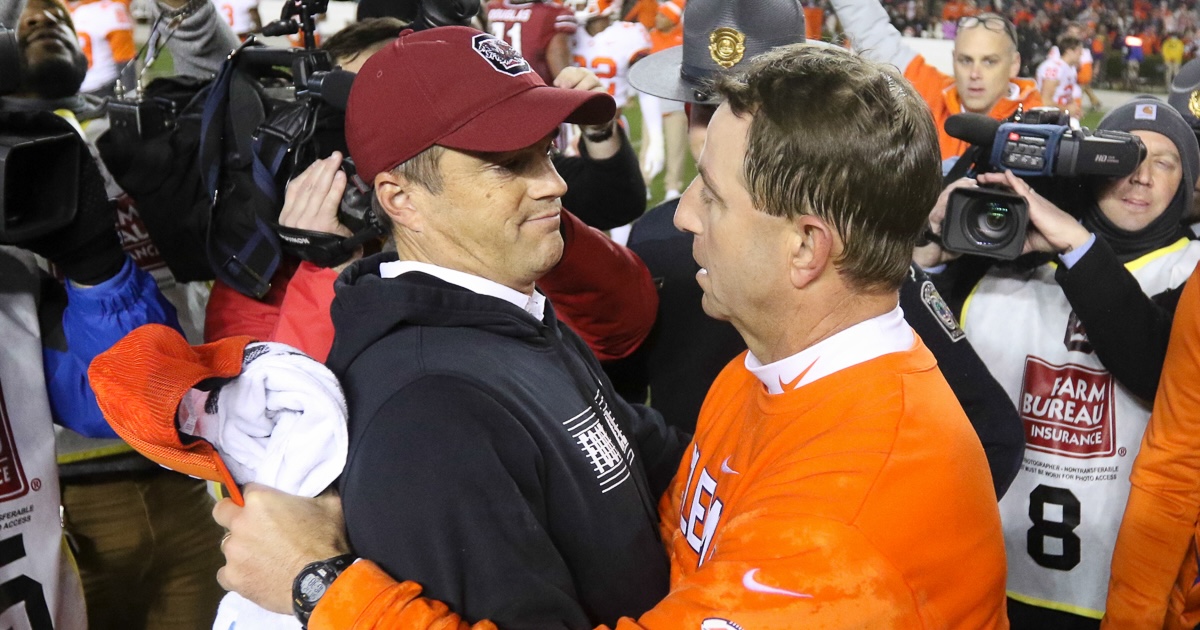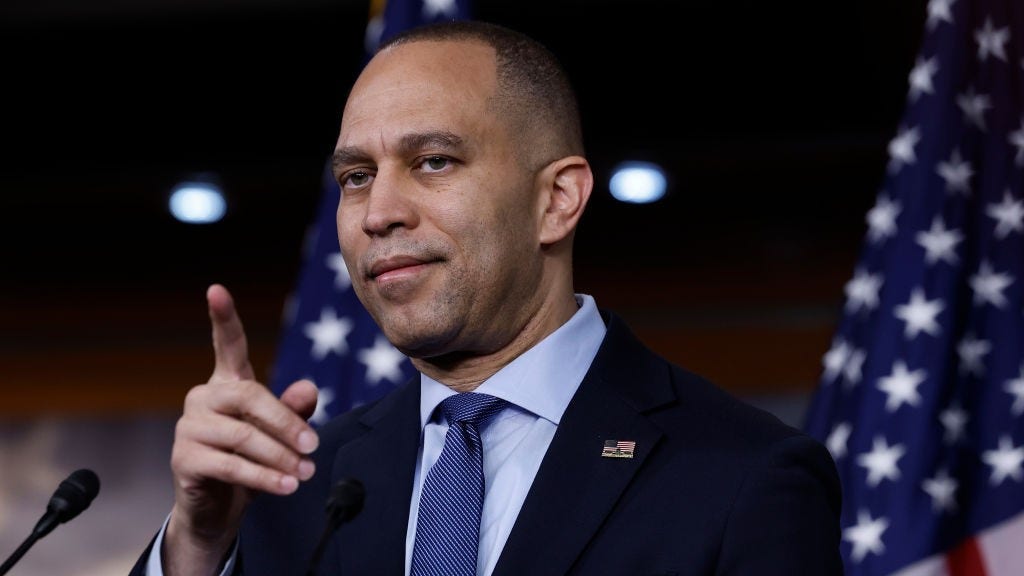Virginia
How Virginia Tech’s academics will compare to SEC and Big Ten schools if it leaves the ACC

If you follow college sports, particularly from a Virginia Tech point of view, you’ve had multiple storylines to follow lately:
- The Virginia Tech softball team advanced into the NCAA Regionals.
- The Virginia Tech baseball team lost in the Atlantic Coast Conference tournament and may or may not receive an NCAA tournament bid.
- Or, the possibility that the ACC might implode and Virginia Tech could go conference-hunting.
Two of those things are transitory events — sometimes teams win, sometimes they lose — but the third is a more existential threat. Or an opportunity, depending on your point of view. The college sports landscape has always been changing but in more recent times it’s gone through some tectonic shifts. The Big Ten Conference, which once really did have 10 teams, all in the Midwest, will soon have 16 and will stretch from coast to coast — or at least from Piscataway, New Jersey, to Los Angeles, California. Some conferences have disappeared (RIP, the Big Eight Conference and the Southwest Conference) and some are thought to be in danger of doing so (the Pac-12 will soon be down to 10 schools and some of those appear to be flirting with, well, that anachronistically named Big Ten).
The driver of all these shifts is — I know this will shock you — money. Specifically, television money. The big news recently, first reported by Sports Illustrated, was that seven schools in the ACC (including Virginia and Virginia Tech) were exploring their options. The ACC is locked into a television contract through 2036 that pays each school roughly $35 million to $38 million. That would seem quite sufficient for what are supposedly amateur sports, but the Big Ten schools and the Southeastern Conference schools get about $50 million apiece. Sports Illustrated reports that, as the years go by, and the television rights get more lucrative, the ACC schools could be $30 million behind their Big Ten and SEC counterparts.
It may not be possible for the restive ACC schools to wriggle out from their current conference — the exit fee under the current contract is $120 million — and the school presidents this week adopted a plan to revise how it distributes the TV money, so that more athletically successful schools will get more money (and the losers less). While that may appease some schools for now, it also hasn’t stopped people from speculating wildly, endlessly, over which schools might go where if they were free agents. If you’re a Virginia Tech fan, this is a matter of some concern, but you might be old enough to remember when Virginia Tech desperately wanted to get into the ACC but the ACC didn’t want it. Only a lot of deal-making, which involved then-University of Virginia President John Casteen insisting on Tech, made Tech’s entry possible. (So did lobbying by then-Gov. Mark Warner, which I wrote about in a previous column. Republicans have reminded me that then-Attorney General Jerry Kilgore was involved, too, with a lawsuit against the ACC which he believed helped create some negotiating room. Ah, those were the days, when politicians involved in schools were concerned about conference affiliations and not books on the library shelf.)
In any case, the current speculation goes on unabated. The general chatter fits into these categories:
1. Virginia Tech goes into the SEC, and Virginia goes into the Big Ten.
2. Both schools go into the Big Ten.
3. Both schools go into the SEC.
4. Virginia goes into the Big Ten or the SEC but Virginia Tech has to settle for the Big 12, which is definitely seen as a less desirable option all around.
For those among us who are not sports fans, but who, like me, are fascinated by the politics here, this is all you need to know: The Big Ten consists of big schools mostly in the Midwest. The SEC consists of big schools in the South. The Big 12 is a growing collection of schools that couldn’t get in anywhere else.
Much of this speculation has dealt strictly with sports prowess — Clemson’s a football powerhouse and the SEC is best known for football, so naturally the SEC would want Clemson. Much of it has also dealt with media markets — the SEC already has South Carolina so it doesn’t need another school in the Palmetto State; it would be better off expanding its footprint with schools in North Carolina and/or Virginia.
Some of it, though, has dealt with which conferences are the best academic fit. That may seem an odd thing when we’re generally talking about how much television networks will pay to show people throwing around bags of air but academics do come into play somewhere. The Big Ten likes its schools to be members of the Association of American Universities, an elite group of 65 research-focused schools, 63 in the United States and two in Canada. All of the Big Ten schools are AAU members except Nebraska, which was a member when the Cornhuskers were admitted. Even some sports sites pay homage to academics. Consider this quote I found on a Purdue-focused sports site as its hosts speculated on the ACC schools the Big Ten should try to pick off: “The ones that make the most sense to me are Virginia and Virginia Tech. Sure, there’s not a huge television market in play here but if I just had to pick two that’s who I’d pick. Culturally they just feel most similar to the Big Ten. Virginia is strong academically and Virginia Tech has a good engineering school.”
I am not the best person to assess how Virginia Tech’s football team would fare in the Big Ten versus the SEC but it strikes me that it is possible to evaluate the proposition that Virginia Tech has more in common with the Big Ten than the SEC. For comparison purposes, I’ll even throw in Virginia. (Would the two schools be a package deal? That’s a question for another day.)
AAU membership
Let’s start with a basic fact: the Big Ten’s desire for AAU members. Five ACC schools are AAU members: Duke, Georgia Tech, North Carolina and the University of Virginia. If that’s a must-have for the Big Ten, then Virginia Tech is on the outside looking in. In that case, hello SEC or, worst case, hello Big 12. The AAU isn’t a group you apply to or even say you want to be a member of. That’s considered poor taste. Tech President Tim Sands has made it clear, though, that he wants the school to rise in the rankings of research schools, so the higher Tech rises, the more likely it is that the AAU will come calling.
Acceptance rates
How does one measure academic excellence? I’m sure many a Faculty Senate committee has debated this. For our purposes today, I’m looking for something numerical that we can measure all schools against. Not every school publishes the grade point average of their incoming students and I’m not sure how useful those are anyway because grading scales of different high schools might vary. I’m not sure how useful acceptance rates are, either, but they are available, so let’s at least look at those. All these figures, and the ones to follow, come from U.S. News and World Report and its annual college rankings. I’m skittish about the actual rankings but figure the data that goes into them is good. For figuring purposes, I’m also including the new members that the Big Ten and SEC will pick up in 2024 (UCLA and Southern California for the Big Ten and Texas and Oklahoma for the SEC). So here are acceptance rates for the ACC. You’ll see that Virginia is one of the most selective schools in the ACC, Virginia Tech one of the least.
ACC acceptance rates
1. Duke 6%
2. Notre Dame 15%
3. Georgia Tech 18%
4. Boston College, North Carolina (tie)19%
6. Virginia 21%
7. Wake Forest 25%
8. Miami 28%
9. Florida State 37%
10. North Carolina State 47%
11. Clemson 49%
12. Virginia Tech 56%
13. Syracuse 59%
14. Pittsburgh 67%
15. Louisville 74%
Now, what if Virginia and Virginia Tech were in the SEC (which would then have at least 18 members)?
SEC acceptance rates
1. Vanderbilt 7%
2. Virginia 21%
3. Texas 29%
4. Florida 30%
5. Georgia 40%
6. Virginia Tech 56%
7. South Carolina 62%
8. Texas A&M 64%
9. Auburn, Louisana State (tie) 71%
11. Tennessee 75%
12. Mississippi State 76%
13. Missouri 77%
14. Alabama 79%
15. Arkansas 83%
16. Oklahoma 85%
17. Mississippi 90%
18. Kentucky 94%
If the Hokies and Hoos were in the SEC, they’d be among the most selective schools in the conference.
And if they were in the Big Ten (which then also would have at least 18 members)?
Big Ten acceptance rates
1. Northwestern 7%
2. UCLA 11%
3. USC 13%
4. Michigan 20%
5. Virginia 21%
6. Maryland 52%
7. Virginia Tech 56%
8. Ohio State 57%
9. Penn State 58%
10. Illinois, Wisconsin (tie) 60%
12. Rutgers 68%
13. Purdue 69%
14. Minnesota 73%
15. Nebraska 81%
16. Michigan State 83%
17. Indiana 85%
18. Iowa 86%
Both schools would be among the most selective schools in the conference. Iowa ranks last in the Big Ten with an acceptance rate of 86%.
Bottom line: Both schools would seem to be good academic fits for both the SEC and the Big Ten based on acceptance rates.
SAT scores
Now, here’s something I’d consider a better measure than acceptance rates because almost everybody takes the same Scholastic Aptitude Test. Yes, it may have problems of its own, but at least those problems should be consistent across the country. U.S. News and World Report lists SAT scores in a range between the 25th percentile and the 75th percentile of those admitted, not merely accepted. So we’ll look at both the lowest number and the highest number.
Virginia Tech’s SAT scores range from 1210 to 1410; Virginia’s from 1390 to 1510.
In the ACC, Virginia Tech’s low score of 1210 ranks 13th out of 15 schools. Its high score of 1410 ranks 12th out of 15. Virginia’s low score ranks fourth while its high score is also tied for fourth.
So what happens if those schools moved to other conferences?
SEC: The highest low SAT scores
- Vanderbilt 1480
- Virginia 1390
- Florida 1300
- Georgia 1270
- Virginia Tech 1210
- Auburn, Tennessee (tie) 1170
- Oklahoma, South Carolina (tie) 1150
- Texas A&M 1140
- Louisiana State, Missouri (tie) 1130
- Kentucky 1083
- Alabama 1070
- Arkansas 1050
- Mississippi State 1030
- Mississippi 1025
SEC: The highest high SAT scores
- Vanderbilt 1570
- Virginia 1530
- Florida 1470
- Georgia 1450
- Virginia Tech 1410
- Texas A&M 1380
- Alabama 1370
- South Carolina 1360
- Auburn, Missouri (tie) 1350
- Oklahoma, Tennessee (tie) 1340
- Kentucky 1330
- Louisiana State 1320
- Mississippi State 1280
- Mississippi 1225
- Arkansas 1220
In the SEC, Virginia Tech’s SAT scores would rank it fifth highest, no matter which end of the scale we’re using. Virginia Tech would move from near the bottom of the ACC to one of the academic elites in the SEC, which might be good if you’re trying to win the Academic Bowl but suggests that Virginia Tech may not be in similar academic territory. If Virginia were in the SEC, its SAT scores would be the second highest, behind only Vanderbilt. Now let’s look at the Big Ten:
Big Ten: Highest low SAT scores
- Northwestern 1460
- Southern California 1410
- Virginia 1390
- Michigan 1360
- Wisconsin 1340
- Maryland, Illinois (tie) 1330
- Minnesota 1310
- UCLA 1290
- Ohio State 1250
- Rutgers 1240
- Virginia Tech 1210
- Penn State 1200
- Purdue 1190
- Michigan State 1100
- Nebraska 1090
Big Ten: Highest high SAT scores
- Northwestern 1560
- Southern California 1540
- Virginia, Illinois (tie) 1530
- UCLA 1520
- Maryland, Wisconsin (tie) 1510
- Minnesota 1490
- Rutgers 1470
- Ohio State 1440
- Purdue 1430
- Virginia Tech 1410
- Penn State 1400
- Indiana 1380
- Iowa 1350
- Michigan State 1320
As for the Big Ten, Virginia Tech would be slightly below average but still in good company with schools such as Penn State and Purdue. Virginia would be near the top. (Virginia would be near the top no matter where it is).
Bottom line: Based on SAT scores, Virginia and Virginia Tech would fit in both the Big Ten and SEC but do seem to better fit the academic profile of the Big Ten.
ACT scores
College teams have rivals; so do standardized tests. The rival to the SAT is the ACT, for American College Testing.
Virginia Tech’s scores range from 26 to 32; Virginia’s from 32 to 35. (The highest score possible is 36).
In the ACC, Virginia’s lowest score leaves the school tied for third with Notre Dame, behind Boston College and Duke. In the ACC, Virginia Tech’s lowest score ranks 13th. In the SEC, both schools move up – Virginia Tech would move up the most to become one of the conference’s academic elites.
SEC: Highest low ACT scores
- Vanderbilt 34
- Virginia 32
- Florida, Texas, Georgia 29
- Virginia Tech, South Carolina (tie) 26
- Texas A&M, Tennessee (tie) 25
- Auburn 24
- Louisana State, Missouri, Oklahoma (tie) 23
- Kentucky 22
- Alabama, Arkansas, Mississippi, Mississippi State (tie) 21
SEC: Highest high ACT scores
- Virginia (tied with Vanderbilt) 35
- Texas 34
- Florida, Georgia 33
- Virginia Tech 32
- Alabama, South Carolina, Texas A&M, Tennessee (tie) 31
- Auburn, Mississippi State, Missouri (tie) 30
- Kentucky, Louisana State, Mississippi, Oklahoma (tie) 29
- Arkansas 28
Now let’s see about the Big Ten:
Big Ten: Highest low ACT scores
- Northwestern 33
- Virginia, Southern California (tie) 32
- Michigan 31
- Maryland 30
- Illinois 29
- Wisconsin 28
- Rutgers, Minnesota 27
- Virginia Tech, Indiana, Ohio State, Penn State, Purdue (tie) 26
- Michigan State 23
- Iowa, Nebraska 22
Big Ten: Highest high ACT scores
- Virginia, Northwestern, Michigan, Southern California (tie) 35
- Illinois, Maryland 34
- Purdue, Rutgers 33
- Virginia Tech, Indiana, Minnesota, Ohio State, Penn State, Wisconsin (tie) 32
- Iowa, Michigan State 29
- Nebraska 28
In the Big Ten, Virginia would be first or second on either scale; Virginia would be further down, but tied with a lot of other “name” schools. That doesn’t seem bad company to keep. In terms of scores, Virginia Tech’s high scores would be closer to the top of the Big Ten than the bottom. (Of note: ACT scores aren’t available for UCLA. If its ACT scores are anything like its SAT scores, UCLA would likely make both lists and push Virginia Tech down a notch.)
Bottom line: If the Big Ten is truly looking for academic credentials, it ought to grab Virginia — and Virginia Tech would be a comfortable fit.
Research spending
So far, we’ve essentially been comparing student bodies. Here’s a category where we compare faculty — at least those engaged in research. I realize that leaves out a lot of faculty but research is something that many schools compare themselves on. For this, I’m relying on data from the National Science Foundation for 2021.
This is also where we see the clearest separation between schools — and conferences. The Big Ten is far more research-focused than the SEC or the ACC.
Fifteen of the 16 Big Ten schools rank in top 50 in research (Nebraska is the exception) — three of those are in Top 10 (Michigan, UCLA, Wisconsin), five of those are in the Top 20 (those three plus Ohio State and Maryland).
By contrast, only four of the SEC schools are in the top 50 for research — and none in the top 10, and only one (Texas A&M) in the top 20.
Three ACC schools make the top 20; five make the Top 50. Virginia is one of those, ranked 48th. Virginia Tech isn’t far behind at 54th.
ACC: Research spending
- Duke, ranked 11th nationally
- North Carolina, ranked 13th nationally
- Pittsburgh, ranked 18th nationally
- Georgia Tech, ranked 20th nationally
- Virginia, ranked 48th nationally
- North Carolina State, ranked 53rd nationally
- Virginia Tech, ranked 54th nationally
- Miami, ranked 75th nationally
- Florida State, ranked 83rd nationally
- Wake Forest, ranked 102nd rnationally
- Notre Dame, ranked 106th nationally
- Clemson, ranked 107th nationally
- Louisville, ranked 124th nationally
- Syracuse, ranked 144th nationally
- Boston College, ranked 185th nationally
Here’s how Virginia and Virginia Tech would place in the SEC for research:
SEC: Research spending
- Texas A&M, ranked 16th nationally
- Vanderbilt, ranked 24th nationally
- Florida, ranked 27th nationally
- Texas, ranked 35th nationally
- Virginia, ranked 48th nationally
- Virginia Tech, ranked 54th nationally
- Georgia, ranked 57th nationally
- Kentucky, ranked 64th nationally
- Missouri, ranked 71st nationally
- Okalahoma, ranked 74th nationally
- Tennessee, ranked 85th nationally
- Louisana State, ranked 91st nationally
- Mississippi State, ranked 97th nationally
- Auburn, ranked 100th nationally
- South Carolina, ranked 113th nationally
- Arkansas, ranked 140th nationally
- Alabama, ranked 150th nationally
- Mississippi, ranked 158th nationally
If either Virginia or Virginia Tech were in the SEC, they would be among the highest-ranked schools, just as they are in the ACC. Virginia Tech’s No. 54 ranking would far outdistance many of the schools behind it — football powerhouse Alabama is 150th for research. A cynic might say Alabama values Heisman Trophies over Nobel Prizes. Mississippi brings up the rear at 158. Now let’s look at the Big Ten:
Big Ten: Research spending
- Michigan, ranked third nationally
- UCLA, ranked sixth nationally
- Wisconsin, ranked eighth nationally
- Ohio State, ranked 12th nationally
- Maryland, ranked 17th nationally
- Minnesota, ranked 22nd nationally
- Penn State, ranked 26th nationally
- Southern California, ranked 28th nationally
- Northwestern, ranked 30th nationally
- Illinois, ranked 37th nationally
- Michigan State, ranked 39th nationally
- Indiana, ranked 40th nationally
- Purdue, ranked 41st nationally
- Rutgers, ranked 45th nationally
- Virginia, ranked 48th nationally
- Iowa, ranked 50th nationally
- Virginia Tech, ranked 54th nationally
- Nebraska, ranked 87th nationally
If Virginia and Virginia Tech were in the Big Ten, both would rank near the bottom.
In terms of where Virginia Tech is now, its research component better fits the SEC. Aspirationally, though, Virginia Tech’s research goals would seem a better match for the Big Ten. The key to Big Ten gridiron glory for the Hokies runs through its various science departments.
Now, none of this means a thing for television contracts, which are going to look at audience potential, not academic performance. But if academics really do matter in college sports, and if Virginia Tech were ever to fit itself outside the ACC and looking for a new home, the Big Ten would seem a better fit than the Southeastern Conference.
Related stories

Virginia
Spread & Over/Under Predictions for West Virginia vs. Arizona

It’s the final day of the Battle 4 Atlantis and the West Virginia Mountaineers are hoping to leave the Bahamas with a third-place finish in the event. Winning the whole thing would have been extremely impressive considering the field, but Darian DeVries’ squad has already notched a key resume-building win over Gonzaga and can do so again today against No. 24 Arizona.
Here are my picks for today’s game. Odds courtesy of FanDuel Sportsbook.
1 Star – Not very confident
2 Star – A little confident
3 Star – Fairly confident
4 Star – Very confident
5 Star – Should be a lock to happen
3-star play on Arizona (-6.5): This is a really tough matchup for the Mountaineers playing its third game in three days. When these two meet later in the year, I believe WVU will put together a much stronger showing and potentially even win the game. Not there, though.
The Wildcats have a nine-man rotation, which occasionally will be a ten-man. WVU’s key players have logged a ton of minutes over the last two days, with both games going to overtime. As evidenced in yesterday’s game, if the Mountaineers face serious foul trouble, it impacts them more than most teams due to a lack of depth. Amani Hansberry should be able to produce a third straight big game, but if he starts picking up fouls left and right, WVU will be in trouble. Arizona’s guard-heavy lineup will attack and finish around the rim with ease.
I’ve got the Wildcats pulling away with a strong second half.
1-star play on the under: Arizona is a high-scoring team that likes to push the tempo. They’ve averaged 67 field goal attempts in this tournament, whereas WVU has attempted 59 and 63 in games that went to overtime. For West Virginia to win, they’re going to have to slow things down when they have the ball, much like they did in the opening-round game against Gonzaga.
I mentioned fatigue setting in as a possibility in the WVU-Louisville game yesterday, and although Darian DeVries isn’t using that as an excuse, you can tell it played a factor for both teams, especially in the first half. Both squads looked sloppy, slow, and disjointed. I seriously doubt WVU and Arizona will have an extra bounce in their step today, playing for the third time in three days and in a game deciding who takes home third place.
ATS: 3-3 (50%)
O/U: 4-2 (66%)
Overall: 7-5 (58%)
Odds Disclaimer
Game odds refresh periodically and are subject to change.
If you or someone you know has a gambling problem and wants help, call 1-800-GAMBLER.
MORE STORIES FROM WEST VIRGINIA ON SI
Everything Darian DeVries Said Following West Virginia’s Overtime Loss to Louisville
How to Watch & Listen to West Virginia vs. No. 24 Arizona
Big 12 Score Predictions for the Final Week of the Regular Season
Can West Virginia Finish Strong? ESPN FPI Reveals Chances to Beat Texas Tech
Virginia
Virginia woman charged in alleged murder-for-hire plot

A Virginia woman has been arrested and charged in connection with a murder-for-hire plot, according to the Henry County Sheriff’s office.
Gennevieve McGhee, 44, was allegedly captured via audio and video evidence in the meticulous planning of a murder for hire, the sheriff’s office said.
McGhee is accused of meeting with a confidential source at her residence in Ridgeway, Virginia. The source was acting under law enforcement direction and utilizing a recording device to capture evidence.
TEXAS INFLUENCER SENTENCED TO 10 YEARS IN PRISON FOR MURDER-FOR-HIRE PLOT
Henry County Sheriff’s Office charged Gennevieve McGhee, 44, with criminal solicitation of murder following an investigation that revealed her alleged involvement in planning a murder for hire. (Henry County Sheriff’s Office)
She allegedly discussed detailed instructions on payment arrangements and instructions for carrying out a robbery and murder.
McGhee is charged with criminal solicitation of murder and conspiracy to commit a felony.
INDIAN INTELLIGENCE OFFICIAL CHARGED IN MURDER-FOR-HIRE PLOT ON SIKH SEPARATIST LEADER IN NEW YORK CITY

Gennevieve McGhee, 44, is charged with criminal solicitation of murder and conspiracy to commit a felony. (iStock)
McGhee was taken into custody by deputies from the Henry County Sheriff’s Office on Wednesday and is being held at the Henry County Adult Detention Center with no bond.
CLICK HERE TO GET THE FOX NEWS APP
The case remains under review by the Henry County Commonwealth’s Attorney’s Office.
Additional information on the case is not available at this time, officials said.
Virginia
How to Watch & Listen to West Virginia vs. No. 24 Arizona

The West Virginia Mountaineers (4-2) will meet the No. 24 Arizona Wildcats in the third place game of the Battle 4 Atlantis midseason tournament for the sixth meeting between the two programs.
West Virginia vs. Arizona Series History
Arizona leads 2-3
Last Meeting: March 28, 2008 (NCAA Tournament) WVU 75-65
When: Friday, November 29
Location: Paradise Island, Bahamas, Imperial Arena (3,900)
Tip-off: 3:00 p.m. EST
Stream: ESPN2
Announcers: Beth Mowins and Debbie Antonelli
Radio: Tony Caridi (PBP), Brad Howe (analyst) Mountaineer Sports Network from Learfield IMG College(Radio affiliates)
WVU Game Notes
– West Virginia was scheduled to play in the 2020 Battle 4 Atlantis. The tournament was moved to Sioux Falls, S.D., due to COVID, and the Mountaineers won the renamed Bad Boy Mowers Crossover Classic.
– WVU is 45-16 in in-season tournaments since 2007.
– With a win over No. 3 Gonzaga, WVU defeated a Top 5 AP team for the second consecutive season. Last season, the Mountaineers downed No. 3 Kansas in Morgantown, 91-85.
– Prior to the overtime win over No. 3 Gonzaga, WVU had lost six straight overtime games.
– This is WVU’s fourth trip outside the United States and Puerto Rico to play a regular season game. WVU played in Cancun in 2013 and 2019 and opened the season in Germany in the 2017 Armed Forces Classic.
– West Virginia is the only team in the country that has two players on the same team who averaged more than 20 points per game from last season — Tucker DeVries (21.6 ppg) and Jayden Stone (20.8 ppg)
– West Virginia is 201-55 against nonconference teams in regular season games in the last 21 seasons.
– The Mountaineers have posted a winning nonconference record in 31 of the last 32 seasons.
– WVU is 265-99 in its last 362 games against unranked teams, including winners of 148 of its last 180 at the WVU Coliseum.
– This is the 116th season and 122nd year overall for WVU basketball, which began in 1903.
– Darian DeVries, who led Drake to six consecutive 20-win seasons and has a career .731 winning percentage as a head coach, was named the 23rd head men’s basketball coach at West Virginia University on March 24, 2024.
– DeVries has a record of 154-57 (.731) in seven seasons as a head coach, including a 59-16 (.787) mark in the last two-plus seasons.
– This past August, the men’s basketball team went to Italy for a 10-day tour and won all three of its games against international competition.
– West Virginia returns just 2.8 percent of its scoring from last season’s team (Ofri Naveh).
– The Mountaineers are led by a pair of transfers in Tucker DeVries (Drake) and Javon Small (Oklahoma State). Last season, DeVries was named an Associated Press All-American Honorable Mention selection, while Small earned All-Big 12 Honorable Mention honors.
– In addition, Eduardo Andre (Fresno State), Joseph Yesufu (Washington State), Sencire Harris (Illinois), Amani Hansberry (Illinois) and Jayden Stone (Detroit Mercy) will all see considerable action this season.
– Tucker DeVries was named to the 20-member Julius Erving Preseason Watch List, giving annually to the nation’s top small forward.
– Tucker DeVries was named to the preseason Naismith Trophy Men’s College Player of the Year Watch List.
– Tucker DeVries was named to the John R. Wooden Award Top 50 Preseason Watch List.
-

 Science1 week ago
Science1 week agoTrump nominates Dr. Oz to head Medicare and Medicaid and help take on 'illness industrial complex'
-

 Health6 days ago
Health6 days agoHoliday gatherings can lead to stress eating: Try these 5 tips to control it
-

 Health4 days ago
Health4 days agoCheekyMD Offers Needle-Free GLP-1s | Woman's World
-

 Science3 days ago
Science3 days agoDespite warnings from bird flu experts, it's business as usual in California dairy country
-

 Science1 week ago
Science1 week agoAlameda County child believed to be latest case of bird flu; source unknown
-

 Technology3 days ago
Technology3 days agoLost access? Here’s how to reclaim your Facebook account
-

 Sports1 week ago
Sports1 week agoBehind Comcast's big TV deal: a bleak picture for once mighty cable industry
-

 Entertainment2 days ago
Entertainment2 days agoReview: A tense household becomes a metaphor for Iran's divisions in 'The Seed of the Sacred Fig'















